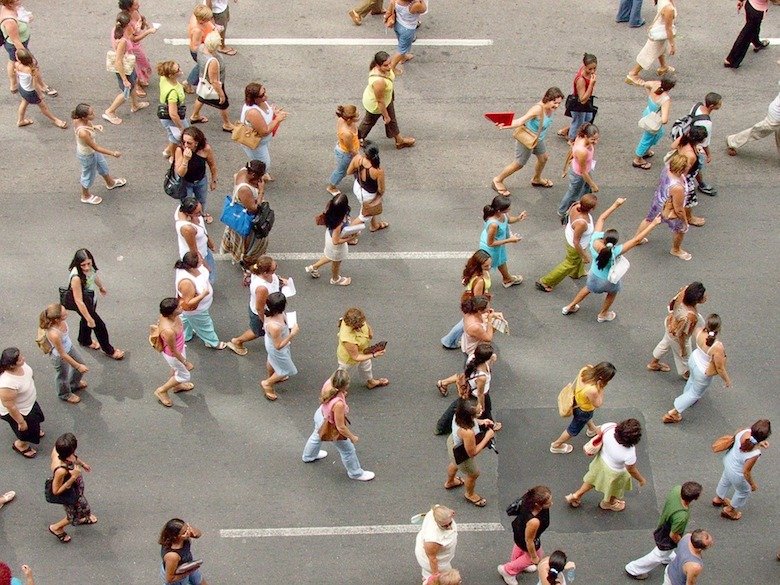
It is scientifically proven: citizens of big cities have a higher walking speed than people living in smaller cities. Or: the larger the number of inhabitants, the faster they walk.
That seems self-explanatory. But why is that so? Several scientific studies have been done in the last 40 years, and they all had (almost) the same results. They differ in the conclusions, though.

The first and best-known research was done in 1976 by Marc and Helen Bornstein who measured the walking speed of pedestrians in 15 different cities and towns in 6 different countries. They (and other psychologists at the time) concluded a theory of escapism (avoiding personal interference due to overcrowding or escaping the growing stimulants of traffic, advertising, etc. – to be home sooner). But – wait a minute… Can this multitude of interpersonal and cognitive stimuli not be a thriving power for some?
The Bornsteins’ conclusion didn’t seem to suffice for later researchers. In 1989 Walmsley and Lewis suggested that the bigger the city, the higher its economic activity. Along with higher wages and higher living expenses in the cities comes the perception of “time is money” – and because of this, residents of larger cities would make up for time lost with unrewarding activities (like walking) by increasing their speed.

A 1999 research by Robert Levine confirmed the connection between walking pace and money: according to this research, the 10 most speedy cities were Dublin, Amsterdam, Bern/Zurich, London, Frankfurt, New York, Tokyo, Paris, Nairobi, and Rome – with all of them (except Nairobi) being cities of wealthy countries (1999).
In his research, Levine proved the correlation of the G.D.P., the purchasing power and the state of individualism, and the walking speed of the cities’ residents. This means that people in big cities who walk less fast, have a lower GDP. The faster people in a big population walked, the higher their GDP. It’s like they’re literally running for their money.
